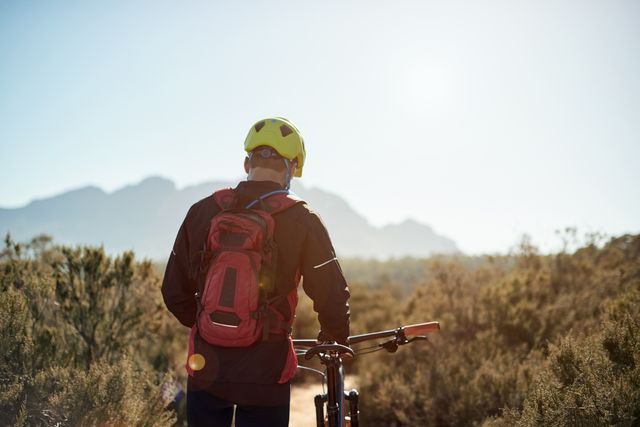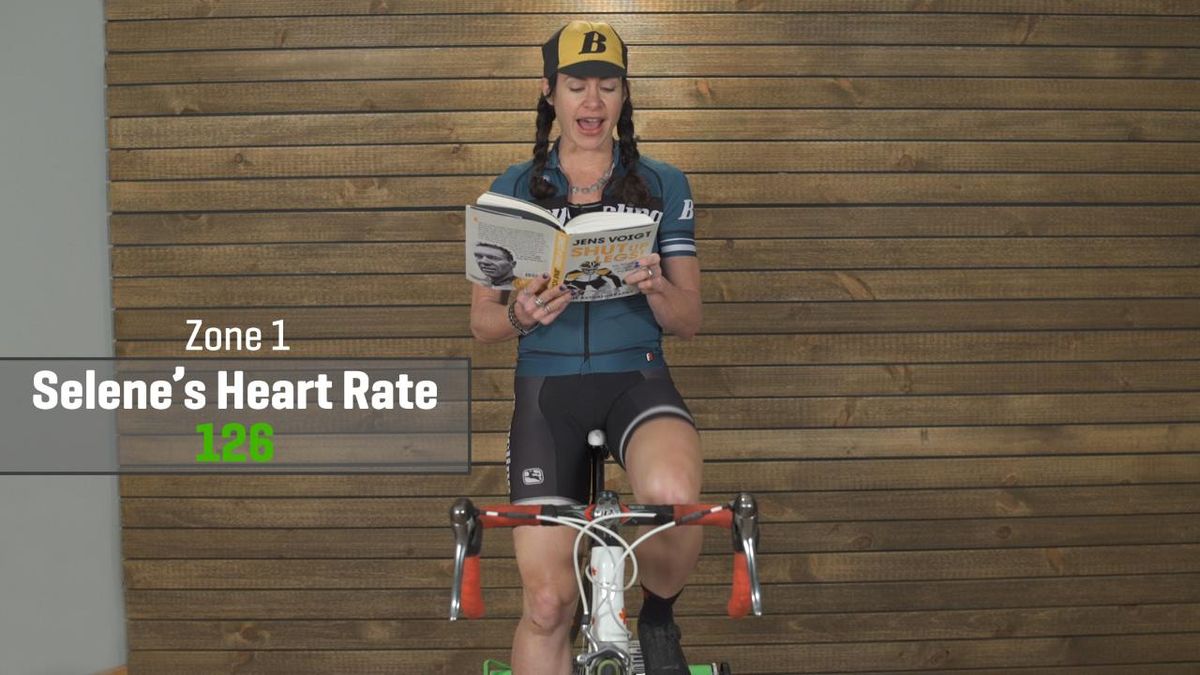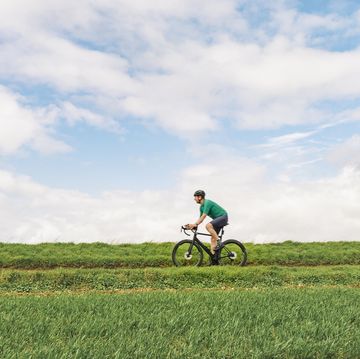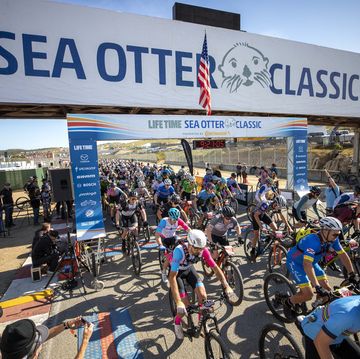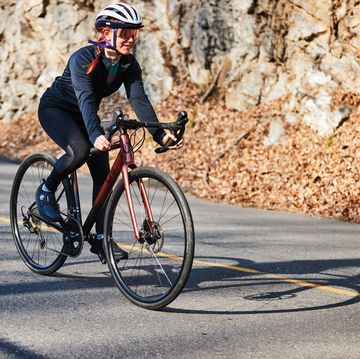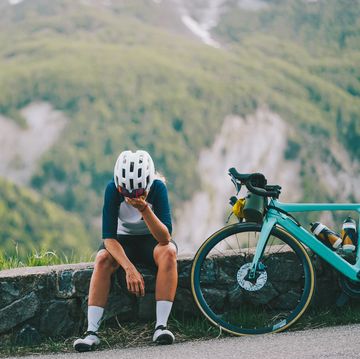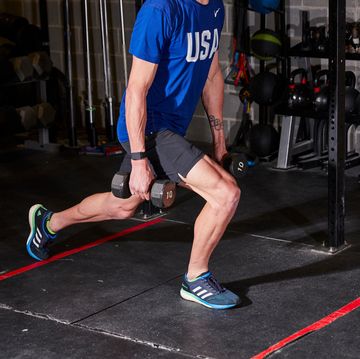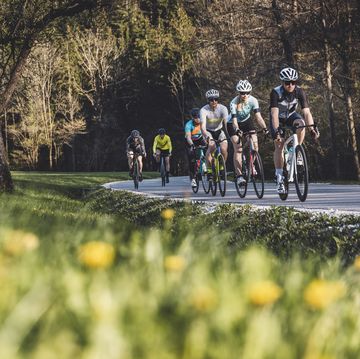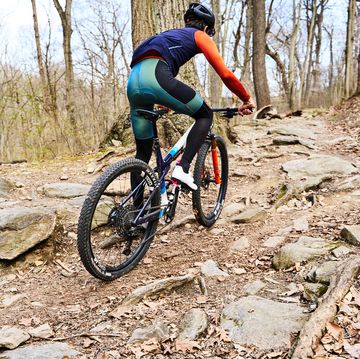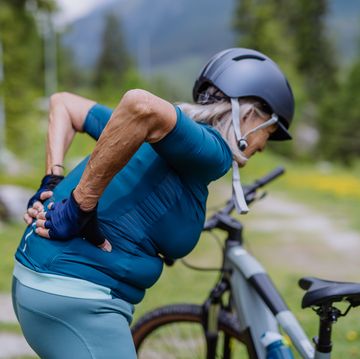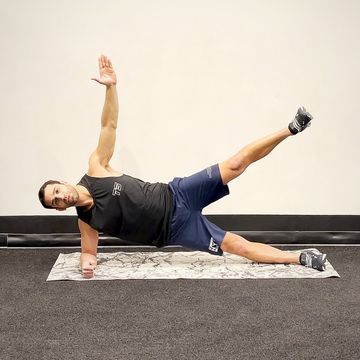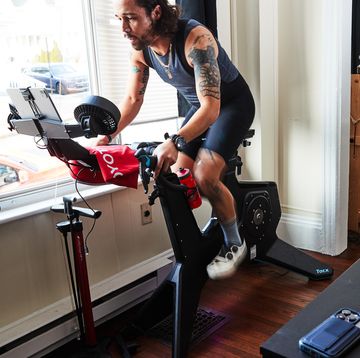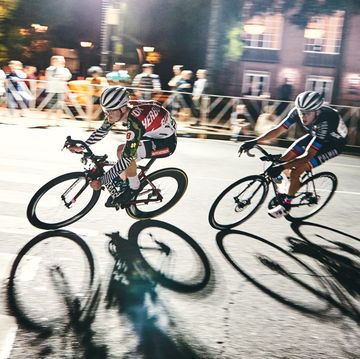Between awaiting the highly-anticipated weather forecast from everyone’s favorite groundhog (or watching your favorite Bill Murray movie, again) and hunting for the perfect gift for that special someone, it’s easy to forget: February is national heart month. But do cyclists and other athletes really need to worry about their heart health?
We hear so often about the health benefits of cycling, and all the ways that riding a bike strengthens and protects your heart and prolongs your life, that it’s easy to think riding makes you immune from heart problems. That assumption may lead you to brush off some serious symptoms.
“You see it all the time: Men and women in their 40s and 50s who are healthy and recreationally active, like cyclists and triathletes, make the assumption that because they’re active, heart disease won’t happen to them. That’s not necessarily true,” says Larry Creswell, MD, a triathlon enthusiast, heart surgeon, and author of the Athlete’s Heart Blog. Creswell admits to having had similar thoughts when he took up endurance sports. “I was really surprised when I started swimming and running and cycling in my 40s how many of the folks I trained with either had a heart problem or knew someone with one—pretty much everyone! Exercise helps strengthen your heart and is good for cardiovascular health. That is a certainty. But there’s obviously no guarantee that everyone who exercises will be forever immune to heart disease.”
The good news is that because you are physically active and in tune with your body, you’re likely to see the signs before they become serious. You just need to recognize and heed them. We tapped Creswell to share five key symptoms that your heart could be in trouble—signs many riders (especially men) ignore.
[Find 52 weeks of tips and motivation, with space to fill in your mileage and favorite routes, with the Bicycling Training Journal.]
Chest pain or tightness. Seems like a no-brainer, right? “I can’t tell you how many guys who have had a heart attack or other cardiac event say that they had some chest pain and/or tightness and ignored it or figured it was something else,” says Creswell. “That is the one thing that always surprises me.” To be fair, Creswell concedes that everyone feels pain differently and if you’ve never felt chest pain and you’re a healthy cyclist, it’s easy to think it must be something else like acid reflux or a pulled muscle. “The defining characteristic is that it is brought on by exercise and it subsides when you rest,” he says. “It is generally very reproducible in character.” If you feel intensely during exercise and it subsides when you’re at rest, get to the doctor ASAP.
Women take note, your heart problems may not present so obviously, particularly in the chest pain department. “Chest pain presents differently in women. It may be less severe or be more difficult to pinpoint where the pain is coming from,” says Creswell. “The other symptoms I mentioned should still demand your attention, especially since you may not have the same early warning in the form of chest pain.”
Do you know what each heart rate zone looks like?
Abnormal heartbeats. Heart palpitations are another symptom that you should never ignore. “Pay attention anytime you have the sensation of having an abnormal heartbeat,” says Creswell. It could be pounding in your chest or a light, fast fluttering. If something doesn’t feel right, that’s a sign that it isn’t. “This is where your heart rate monitor can really help,” he says. “If your heart is suddenly zooming along at 210 beats per minute for no good reason, that’s a sign to get checked out. Same thing goes if you’re at home going through your data file and you see episodes where your heart rate is pushing 200 or so when you felt like you were going along at 125.”
Mysterious shortness of breath. If you’re a cyclist—no matter what your level—you know what your breathing pattern is like when you’re riding. When it doesn’t feel normal for the exertion level you’re at, particularly if you’re cruising along fairly easily and suddenly working to catch your breath, something is wrong. This is another easy one to blow off as something else, says Creswell, and indeed it might be. “You could be fatigued or coming down with a cold or virus. But it’s a warning sign and if it’s unexplained, you need to get it checked out,” he says.
Unexplained fatigue. This one generally shows up off the bike. You’re just run down and hunting for a quiet place to nap for no good reason. “It also can show up as a performance decrement that is unexplained,” says Creswell. “If for no good reason, you’re tired on the bike and not progressing or you’re even regressing, it’s a warning sign.”
Nearly blacking out. This is a big red warning flag. If you are nearly blacking out—or worse, actually blacking out—while you’re exerting yourself, it’s really dangerous for a few reasons. One, you could crash. Two, you could suddenly die from a serious underlying heart problem. Get it checked pronto.
One last crucial tip for national heart month: Get a regular check-up from a primary care doctor. “This is where women are often at an advantage. They tend to go to an OB/GYN regularly, so they get their blood pressure checked; they get some blood work done," says Creswell. But guys? “There are men who are healthy and in their 40s, maybe even their 50s and they don’t have a primary care doctor. They’ve never had their blood work done, and can’t remember the last time they had their blood pressure checked. If you’re going to spend all that money on a nice bike and bike computer, and maybe even a power meter and a coach, get yourself a doctor, too! It’ll cost a fraction of all that and take less than an hour out of your year!”

